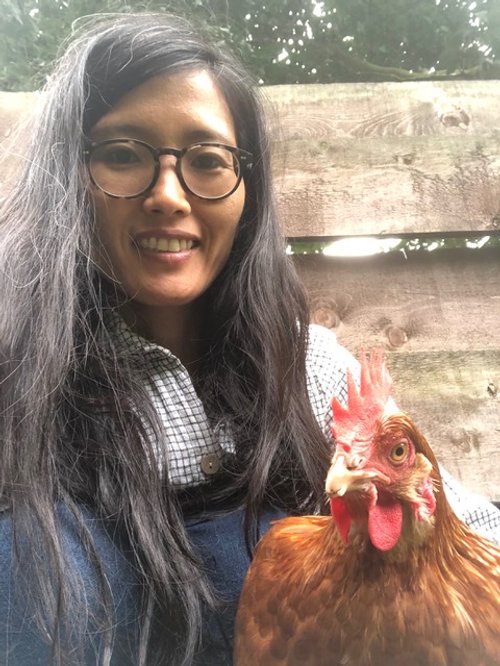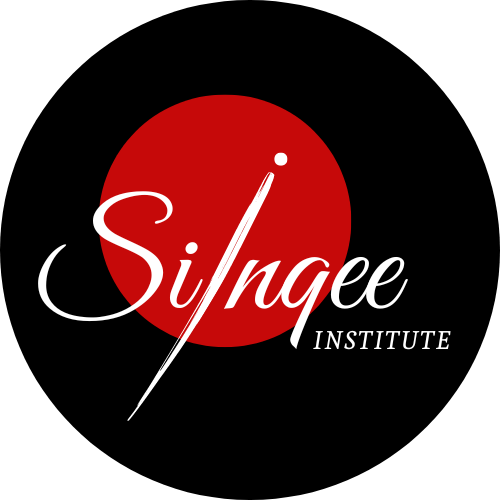Our Board
-

Martha Kuwee Kumsaa
I am an Oromo born and raised in Ethiopia, currently a Canadian citizen. I did my bachelor and Honours degrees at York University and my master’s and doctorate at the University of Toronto. I am a Professor Emerita at the Faculty of Social Work, Wilfrid Laurier University, where I retired from over 20 years of teaching and research. I continue to be engaged in community-based research and collaborative approaches to knowledge co-creation. I am also engaged in deeper inquiries to understand community healing practices.
I am a founding member of the Siinqee Institute, and a passionate siinqee feminist. I bow my head to honour my foremothers and my akkoo (grandma) for the legacy of such profound siinqee women’s Indigenous knowledge. I also pay tribute to my late mother, my unacknowledged feminist role model, who challenged age old patriarchal culture all her life.
My fun activities are singing and dancing, which are not just fun but also practices of healing. Particularly, I love dancing with my ancestors as a way of healing from intergenerational trauma. To understand how dancing with ancestors can be healing for communities, go to Knowledge Mobilization and click here to watch two minutes of Dances of Exile, Part I (6 - 8 minutes).
-

Anh Ngo
I am an Associate Professor at the Faculty of Social Work, Wilfrid Laurier University. I’m interested in the lived experiences of racialized communities in Canada to inform critical refugee and critical multiculturalism studies. My recent research centres on the Vietnamese Canadian subjectivity as it relates to Canadian national identity building. Theoretically I am interested in critical race theories with a focus on Cold War epistemology and racial capitalism. My approach to research is to centre the knowledge of communities through collaborations to highlight the operations of power and its impact on lived experiences and wellbeing of individuals and communities.
-

Peri Klemm
Peri M. Klemm, Ph.D. is Professor of African and Native American art history California State University, Northridge.
Her research over the past 25 years has focused on identity, dress, and the body in Oromia, Ethiopia. Her book, Dressing Modern Like our Mothers. Dress, Identity and Cultural Praxis in Oromia (Africa World Press), came out in 2022 with research support from a Fulbright award and an Andrew W. Mellon grant. She co-curated ‘Bareedina: Women of Oromia’ with her students which traveled throughout the US and Europe.
Peri is currently UCLA consortium editor of Africa Arts Journal, editor for the arts of Africa for Smarthistory at Khan Academy and past president of the Arts Council of the African Studies Association.
She enjoys traveling with her daughters when not engaged in teaching and curation.
-

Eliana Barrios Suarez
I was born and raised in Peru and a Canadian citizen for the past 30 years. I have a PhD and Master from the University of Toronto, a BA in psychology from Trent University and a BSc in Economics from Universidad Del Pacifico (Peru). I have been teaching social work for more than 15 years, currently Emeritus Associate Professor (Wilfrid Laurier University). Before my PhD, I worked in community mental health, with women leaving abuse and survivors of trauma in the Greater Toronto Area. As a diaspora researcher, my research has primarily honoured the resilience of Indigenous women in the aftermath of the Peruvian armed conflict (1980-2000). As part of this commitment, I have examined political activism and memorialization of past violence as strategies for gendered resistance, and most recently, community engagement in the prevention of sexual violence in post conflict regions.
As a member of the Siinqee Institute, I am respectfully and humbly engaged in deeply learning Siinqee principles of connection, solidarity, and equity, which are harmonious with Andean collective traditions. My biggest achievements in life are my three wonderful adult children and I love cooking, listening to music, watching films and hope to make my own movie in the near future.
-

Chizuru Nobe-Ghelani
I am originally from rural Japan and a mother of two young children. I have a BA in Global Studies and Masters in Social Work from Wilfrid Laurier University and doctorate from York University. I am an Assistant Professor at the School of Social Work at Renison University College, University of Waterloo. My scholarship and pedagogy are informed by extensive social work practice in the area of health and wellbeing with marginalized communities both locally and internationally. I am also trained as a horticultural therapist and forest therapy guide. My interest is to combine nature-based practice with social justice work that is grounded in community healing. I love growing vegetables and taking care of chickens, just as my baachan (grandmother) did when I was growing up.
-

Aga Ruda
I am a Licensed Clinical Social Worker with many years of experience in the Child Welfare System in the US. I currently work as a Forensic Behavioral Health Clinician at the Alameda County Health Care Agency. I also volunteer within my local Oromo community. I dream to cultivate connections with Indigenous communities near and far. My passion for exploring Indigenous knowledge, spirituality, and siinqee practices is deeply ingrained in me by my akkoo (grandma) from my tender years. In my childhood fascination, I watched her as she led women’s rituals so gracefully. I loved listening to her prayer song of Asaabalee in her sweet melodious voice. She sang like a bird. And I loved her stories of courage and fearless pursuit of justice. Akkoo was one brave woman born long before her time.
I am a member of the Siinqee Institute, and I joyfully participate in siinqee women’s performances and larger community Irreecha celebrations of Indigenous Oromo thanksgiving. My involvement in the Siinqee Institute comes from my profound desire to understand the depth of women’s spiritual practices like Akkoo’s ancestral knowledge. My goal is to translate siinqee knowledge into the empowerment of women and girls in today's global context.
-

Albu Ungashe
Description goes here

